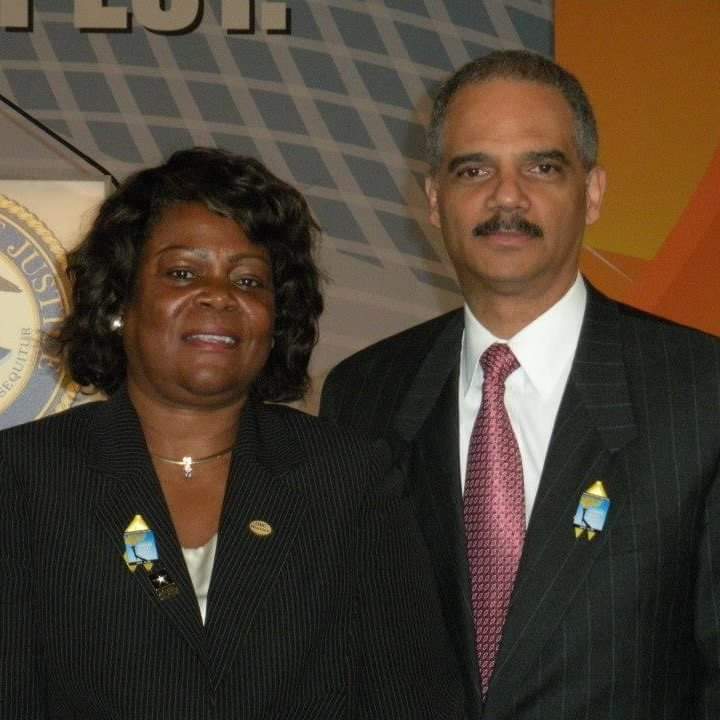By Reginald Williams,
Special to the AFRO
Employed by the Department of Housing and Urban Development (HUD), Verlean K. Brown longed to purchase a home, but her annual salary did not afford her the opportunity to become a homeowner.
At the time, Brown was working in the farm fields and restaurants, had earned her associate degree from Hinds Junior College, and worked for the Mississippi Department of Health. Seeking a solution to her financial shortcomings, the Mississippi native was encouraged by the Army recruiter boyfriend of an acquaintance. One day, with two friends by her side, Brown walked to the second floor of the HUD building and the trio joined the Army Reserves.
“I don’t regret joining the Army,” explained the former master sergeant. “Joining provided me with so much. It provided me with my education, my travel, and my son was able to use the GI Bill to go to school. I was able to build my home in Orlando, Fla.”
Hailing from Terry, MS., located approximately 30 miles south of Jackson, MS., Brown, 71, is from a large family. She is the third eldest of ten children, eight girls and two boys. She admits to feeling privileged growing up with her family because of the work ethics of her parents.
“Me being from a large family, and my father having a farm, I was raised a little bit more privileged. I had anything I could want and more. My mother and father were good providers,” Brown explained.
Brown’s time in the Army eventually provided her with the opportunity to purchase the one thing she didn’t have — her home.
A 35-year military veteran, Brown is disabled. She is grateful because in her retirement and with her disability, she continues to reap the benefits provided by the military.
“I am presently a disabled veteran,” explained Brown. “They paid for all of my medicines and surgeries and diagnosed my cancer. They did everything to make sure that I was well.”
While stationed in Iraq, Brown was exposed to burn pits. The pits are open-air waste disposals consisting of the collection of burned trash. The trash’s expelled toxins are credited with subjecting soldiers to potential health risks. Brown said the military confirmed that her cancer was the result of her exposure to the pits.
During Brown’s three-decade-plus career, the former Master Sergeant’s stellar service impacted numerous military occupations. However, her most significant influence occurred as a Sexual Assault Response Coordinator (SACR).

“My most impactful MOS (military occupational skills) was serving as the first Sexual Assault Response Coordinator. I was a SARC,” said Brown. “I believe I really helped a lot of people. I stepped up and organized the program for the soldiers deployed to Iraq. Anytime a new unit would deploy to Iraq, it was mandatory for them to have sexual assault awareness training.”
Brown was recognized by the United States Department of Defense and received the 2009 Exceptional SARC Award.
“I was recognized with a crystal plague. I also visited the Capital to visit with Congressmen and Senators from Mississippi and Arkansas. I met with Eric Holder, the attorney general under President Obama, and he presented me with an award and video presentation,” shared Brown.
Brown enlisted with the Reserves in 1976 and deployed to Iraq as the Deployed Sexual Assault Coordinator and Equal Opportunity Advisor of the 3d Sustainment Command in April 2008. There she served in Operation Iraqi Freedom. Like most soldiers, being deployed in a war zone has its challenges.
“The first time I was deployed, I was a little afraid, not knowing what to expect, but I talked to a friend, and he reminded me that whatever situation I faced, I would do so with God on my side. I thought ‘God is my guide.’ He’ll be leading me and taking care of me. I went out on faith. I trusted God in that situation. I looked at it like I was supposed to be in Iraq at that time and in that position as the Sexual Assault Response Coordinator to take care of people.”
Now retired for the past 11 years, Brown, who still resides in Orlando, believes joining the military was one of the wisest decisions.
“It was one of the most important and rewarding decisions I made. I don’t regret any part,” Brown said. “Some of it was bad—I don’t even want to talk about that but joining the military and making it a career and retiring from the military and being set up financially, medically and mentally was through the military.”
The same military benefits that benefitted Brown, she believes, can aid youth experiencing financial struggles.
“I think that the military is a great career for young people, especially for those that come from ‘the country’ and they don’t have scholarships or finances to go to school,” shared the Arkansas State University graduate, of the military benefits. “They take care of the medical. They take care of the education. They take care of other training. They take care of the psychological needs. They provide grants, finances for housing and businesses if you want to start a small business. It’s just so many opportunities that the military provides.”
Reginald Williams, the author of “A Marginalized Voice: Devalued, Dismissed, Disenfranchised & Demonized” writes on Black men and holistic health concerns. Please email bookreggie@reginaldwilliams.org or visit amvonlinestore.com for more information.



